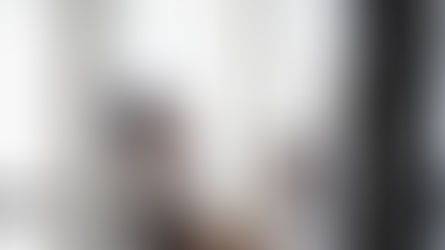SciComm and Beyond: Opportunities in Science Communication
- S2BN Admin

- May 22, 2021
- 3 min read
Simone Renwick | May 22, 2021
On May 11, 2021, Science to Business Network (S2BN) Guelph Chapter welcomed a diverse panel of Science Communication (SciComm) professionals to share their insight with attendees.

About the Speakers
Evguenia Alechine (PhD. Biochemistry, ELS) is a researcher by nature, a scientific writer & editor, a blogger, an entrepreneur, and a healthy lifestyler. Her mission is to make the world a healthier place by delivering scientific research to a broad audience and she is particularly passionate about about communicating scientific advances both to the scientific community and to the public.
Julia Hatherell (B.Sc., Metrix) is a recent graduate from the University of Guelph, with a BSc in Biomedical Science, a Minor in Nutritional and Nutraceutical Science, and a Certificate in Business. She is a Medical Writer & Learning Solutions Designer at a small Toronto-based company called Metrix. In this role, she writes and designs learning materials to educate workforces across a variety of industries. With a passion for learning, she plans to further her education and will be returning to the University this fall to pursue a Master of Science in Nutritional Science.
Ernesto Llamas (Ph.D., Sketching Science) is a molecular biologist with ten years of experience in chloroplast metabolism and protein homeostasis. His multidisciplinary research using human stem cells, neurons, Caenorhabditis elegans and Arabidopsis thaliana is focused on unveiling new mechanisms to degrade or repair aggregated/damaged proteins to extend healthy aging, delay the development of neurodegenerative diseases and design the future varieties of stress-tolerant crops. He is actively enrolled in science communication through illustrations on Sketching Science social media accounts.
Xinjie (Lois) Lin (Ph.D., Nutrasource Diagnostic Inc.) is a medical writer at Nutrasource Diagnostic Inc., Guelph, Ontario. She started with a BSc degree in Food Science and joined the Department of Human Health and Nutritional Sciences at the University of Guelph to pursue her passion in research at the food-nutrition interface. During her MSc and PhD years, Lois gained a lot of scientific communication experiences through publications, presentations, and volunteer activities. Now she applies her sci-comm skills in developing study protocols and reports for clinical research in the nutraceutical industry. She enjoys music and nature in her spare time.
Select Questions and Answers
How did you decide this was the path you wanted to take?
Career coaching helped put things in perspective.
Reflect on the parts of grad school you enjoyed.
Identifying and applying your talents.
Getting involved in extra curricular activities, volunteering, trying different and new things, stepping outside of your comfort zone.
Search online, talk to people with interesting job titles, network.
If you love seeing your research applied in real life and you like to discuss science with different groups/different backgrounds, then you will love being a science writer.
How do you build a high-quality network?
Joining associations e.g. European and American Science Associations.
Connect on LinkedIn with the right people.
Is it difficult to meet deadlines and be creative? Does the “work” hamper your creativity?
It is a misconception that creativity just comes to you. You need to a lot time to work. Sit down and focus on the task.
Ask for more time that what you think is needed to give yourself some buffer room.
“Under-promise and over-deliver”
How do you get started as a freelance science writer?
Can look for jobs online, but the best way to get started is to build your own portfolio so you can show potential employers what you are capable of. Should also create an online presence e.g. LinkedIn, blog posts, guest writing on someone else’s blog, social media. Write wherever you can and then show it off.
How do you balance school and a business such as Sketch Science?
Finding balance is difficult. You do not get a lot of free time. But if you love what you are doing, it does not feel like work. It is fun and fulfilling.
How can you get attention for your work?
Incorporate trendy memes. People love memes and you could potentially go viral.
Create short videos to share on Instagram stories and Tik Tik.
Using Facebook and Twitter will limit your audience.
What is one major challenge you have had to overcome?
Thinking that you have to be an expert on every topic you talk or write about. Don’t be afraid to say “let me do more research and I will get back to you”
What Illustration software does Ernesto use?
Good software includes Sketches, Adobe Fresco, Procreate for iPAD.
As you practice, you will improve. Software does not matter as much as skill.

Thank you to our invited panelists for their generosity with their time and knowledge!



















Comments